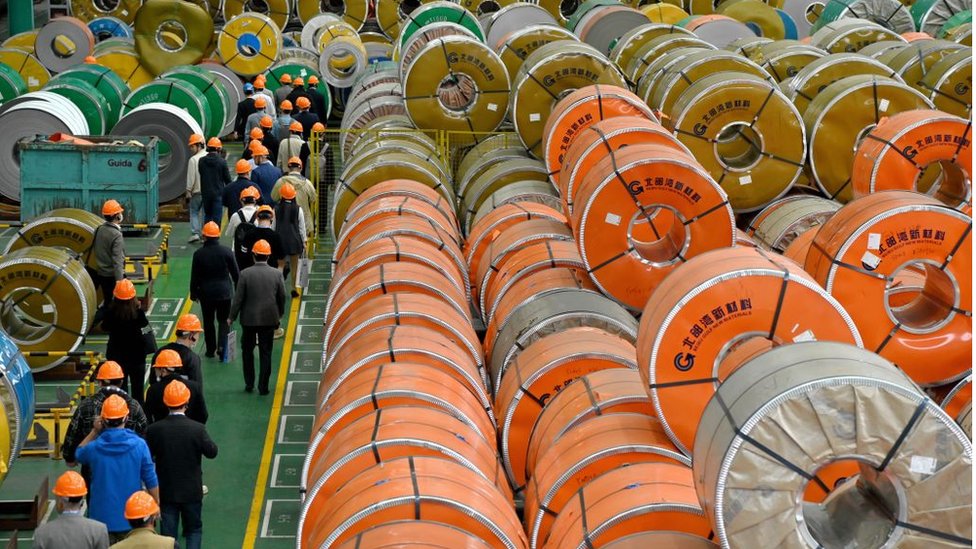CHINA CONTINUES TO BOUNCE BACK FROM COVID-19 SLUMP
China’s economy continues to bounce back from virus slump
China’s economy continues its recovery from the Covid-19 pandemic according to its latest official figures.
The world’s second-biggest economy saw growth of 4.9% between July and September, compared to the same quarter last year.
However, the figure is lower than the 5.2% expected by economists.
China is now leading the charge for a global recovery based on its latest gross domestic product (GDP) data.
The near-5% growth is a far cry from the slump the Chinese economy suffered at the start of 2020 when the pandemic first emerged.
For the first three months of this year China’s economy shrank by 6.8% when it saw nationwide shutdowns of factories and manufacturing plants.
It was the first time China’s economy contracted since it started recording quarterly figures back in 1992.
Gathering pace
The key economic growth figures released on Monday suggest that China’s recovery is gathering pace, although experts often question the accuracy of its economic data.
The quarterly figures are compared to the same quarter of 2019.
“I don’t think the headline number is bad,” said Iris Pang, chief China economist for ING in Hong Kong. “Job creation in China is quite stable which creates more consumption.”
China’s trade figures for September also pointed to a strong recovery, with exports growing by 9.9% and imports growing by 13.2% compared to September last year.
Over the previous two decades, China had seen an average economic growth rate of about 9% although the pace has gradually been slowing.
While the Covid-19 pandemic has hampered this year’s growth targets, China is also embroiled in a trade war with the US which has escalated in recent months.

Cash injections
The Chinese government has rolled out a raft of measures this year to revive the coronavirus-hit economy and support employment.
While the central bank stepped up policy support earlier this year after widespread travel restrictions choked economic activity, it has more recently held off on further easing.
Premier Li Keqiang warned earlier this month that China needs to make arduous efforts to achieve its full-year economic goals.
For the second quarter of this year, economic growth in China reached 3.2% as its started its rebound.
“China’s economy remains on the recovery path, driven by a rebound in exports,” said Yoshikiyo Shimamine, chief economist at the Dai-Ichi Life Research Institute in Tokyo.
“But we cannot say it has completely shaken off the drag caused by the coronavirus.”

Broadening recovery
Analysis by Robin Brant, BBC China correspondent
China’s economy continues to grow at rates unimaginable in other Covid-hit countries.
Draconian lockdown measures to control the virus combined with some government stimulus appeared to have worked well.
While growth of 4.9% is slightly below some forecasts, industrial output – a good barometer of state controlled activity – came in above expectations.
China’s communist party rulers wanted to see ramped up supply, but retail sales were slower than predicted.
Nonetheless it appears to be a broadening recovery with the all-important services sector rebounding.
Domestic tourists and travellers have probably helped the recovery continue by spending their money at home because global restrictions mean they can’t – yet – go abroad.

Travel boom
China’s economy should also get a boost this year from “Golden Week” – an annual holiday in October that sees millions of Chinese travel.
With international travel severely restricted, millions of Chinese have been travelling, and spending, domestically instead.
There were 637m trips in China over the eight-day holiday which generated revenue of 466.6bn RMB ($69.6bn, £53.8bn), according to data from its Ministry of Culture and Tourism.
Duty-free sales in the tropical island province of Hainan more than doubled from last year, soaring by nearly 150% according to the local customs data.






